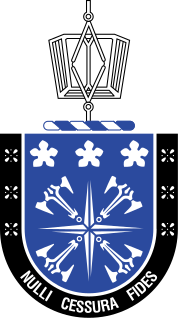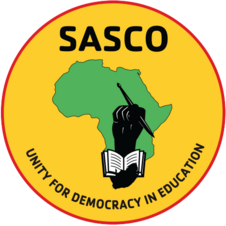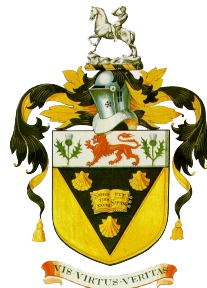Nelson Mandela University (NMU), formerly known as University of Port Elizabeth (UPE), is a South African university with its main administration in the coastal city of Port Elizabeth. Nelson Mandela University was founded through a merger of three institutions in January 2005, but its history dates back to 1882, with the foundation of the Port Elizabeth Art School.

Vaal University of Technology is a tertiary institution in South Africa. It attracts students from all over the country. It is one of the largest residential Universities of Technology, with about 15,000 students, 300 programs, all primarily taught in English. The campus and facilities are conducive to learning, research, recreation and sport, art and culture, and community service. The campuses have lecture halls, laboratories, a number of auditoriums and office space situated on 46 000 square metres. Four Satellite campuses extend the services of the University, at Secunda, Kempton Park, Klerksdorp and Upington. Besides the four faculties, various departments serve its students, catering for their needs.
Mangosuthu University of Technology (MUT) is a University of Technology situated on the outskirts of Durban, South Africa, on a site overlooking the Indian Ocean. MUT is located in the academic hub in the eThekwini metropole, a dynamic growing economy, focused for future growth. It is a residential university, largely serving previously disadvantaged communities with a strategic intent to educate and empower students and communities, and address pressing transformation and multicultural issues facing South Africa.

The University of Port Elizabeth (UPE) was a public university located in Port Elizabeth in the Eastern Cape province of South Africa. UPE was founded on 31 January 1964, by an act of parliament, and held its first academic year in 1965. It offered bachelor's degrees, as well as masters and doctoral degrees. The university closed down in 2004, with its campuses forming part of the Nelson Mandela University, which opened in 2005.
Cape Peninsula University of Technology, a university in Cape Town, South Africa, is the only university of technology in the Western Cape province, and is also the largest university in the province, with over 32,000 students. It was formed by merging the Cape Technikon and a various independent colleges.

The Cape Higher Education Consortium (CHEC) is an association whose members are the four universities in the Western Cape province of South Africa. It describes itself as "A Network of Learning for the Western Cape".

Foundation of Tertiary Institutions of the Northern Metropolis, FOTIM, is the biggest academic association in South Africa. FOTIM consists of nine universities and universities of technology in the Gauteng, Limpopo Province and North West Province.

Central University of Technology, Free State or Central University of Technology is a University of Technology in Bloemfontein in the Free State province of South Africa. It was established in 1981 as "Technikon Free State". As part of the South African government's restructuring of tertiary education for the new millennium it was promoted to university of technology status.

Universities South Africa is an association of the 23 public universities in South Africa. Its function is to form a unified voice for the interests of its members, to form common policy for its members on matters of national importance, and to provide various services to its members.

Namibia University of Science and Technology (NUST), formerly known as Polytechnic of Namibia, is an institute of tertiary education in the city of Windhoek, Namibia. It was until March 2019 headed by the Founding Vice chancellor Tjama Tjivikua. The largely ceremonial role of chancellor of the university is held by Prof. Peter Katjavivi.
St Augustine College of South Africa is a private tertiary academic institution in Johannesburg, South Africa.

The South African Students Congress (SASCO) is a South African student organisation which was founded in September 1991 at Rhodes University in Grahamstown, Eastern Cape, through the merger of the South African National Student Congress (SANSCO) and the National Union of South African Students (NUSAS). The predecessor of SANSCO, the Azanian Students Organisation (AZASO) was initially formed in 1979 as a continuation of the South African Students Organisation (SASO) when the latter was banned by the Apartheid government. SASO, in turn, got started by Steve Biko as a breakaway faction from NUSAS in the 1960s.
The Rhodes University Library is committed to the pursuit of knowledge by connecting people to resources that contribute to the intellectual development of future responsible citizens. The overarching goal of Rhodes University Libraries is to develop and maintain efficient, reliable and responsive library and scholarly communication services that promote, support and enhance the research, teaching and learning endeavours of Rhodes University.
Selby Mvusi was a South African artist. He was born in Richmond, KwaZulu-Natal, on 18 June 1929. In 1961 he took a post at Clarke College, Atlanta, Georgia. He died in a car crash near Nairobi, Kenya, on 10 December 1967. In 2015 Elza Miles wrote a biography of Mvusi, called Selby Mvusi: To Fly with the North Bird South.
South African National Library and Information Consortium (SANLiC) is a non-profit consortium of member institutions aimed at negotiating the procurement of, and securing access to information resources on behalf of its members.











